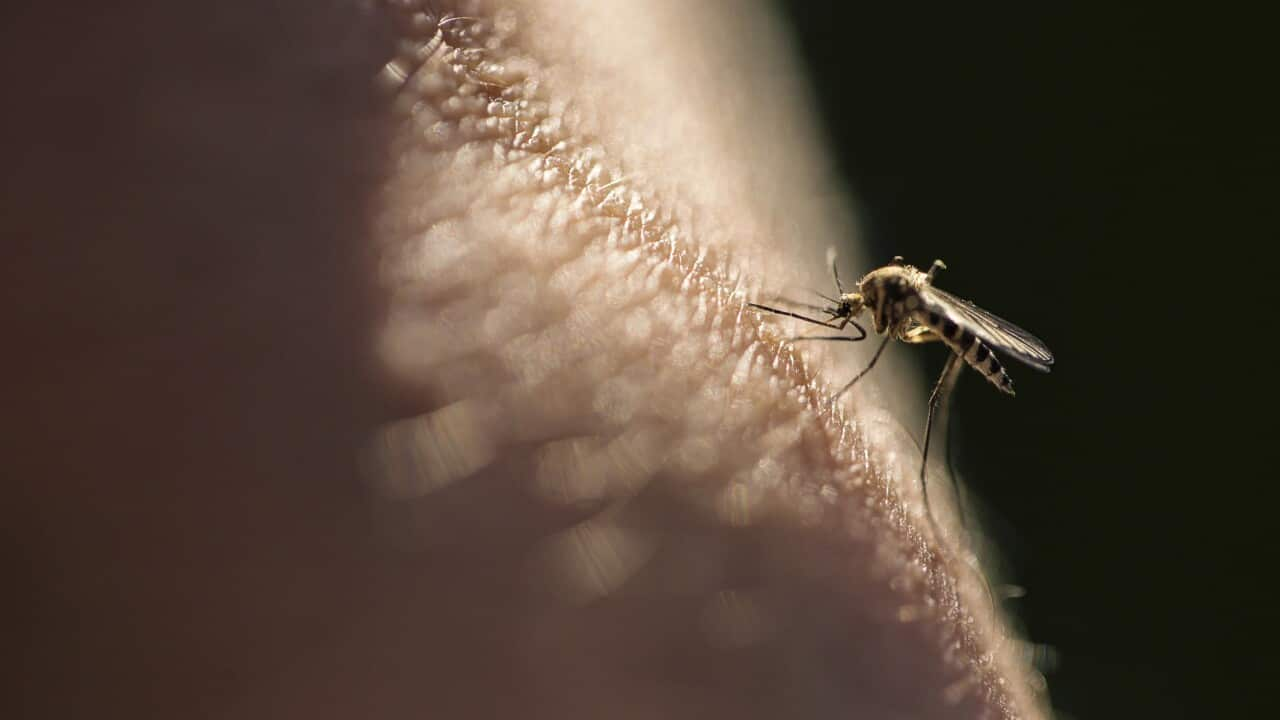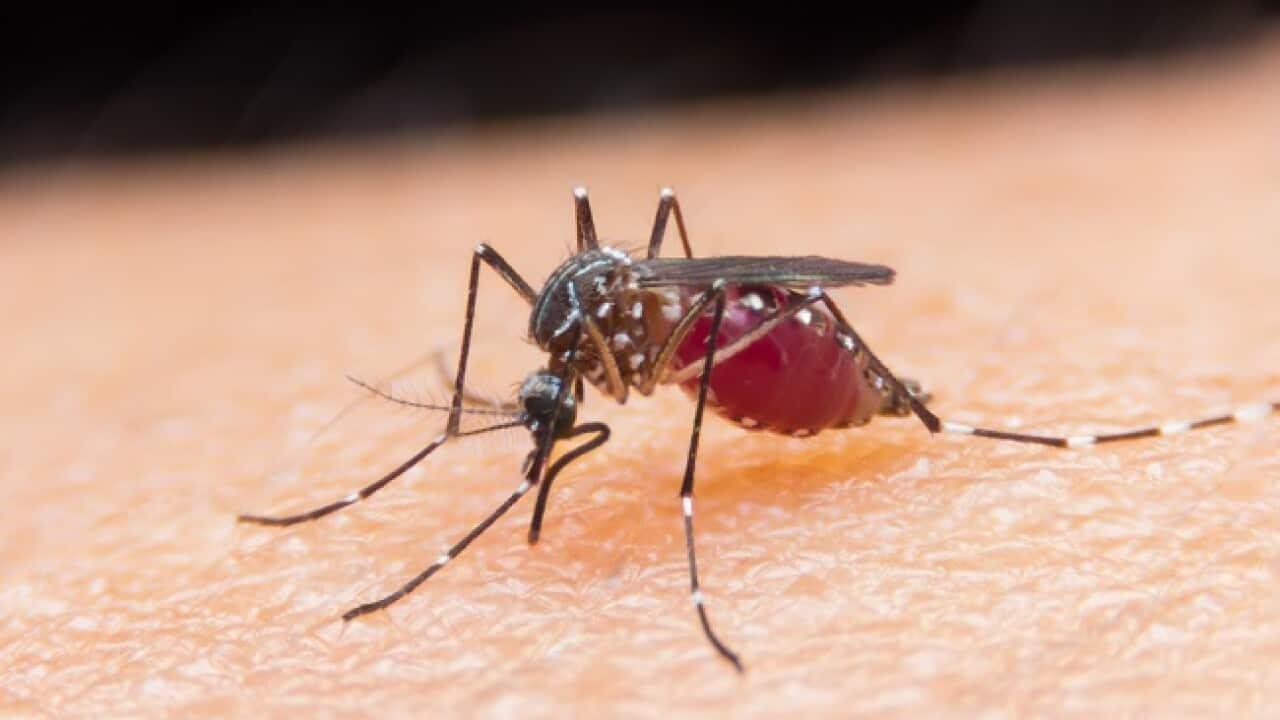A Victorian man is hospitalised in critical condition with what is believed to be one of the country's first cases of Japanese encephalitis virus (JEV) since 2022.
Stephen Bond told his wife he was experiencing headaches and a fever in early December, a GoFundMe page set up on behalf of his family says.
He was taken to hospital in Shepparton, northern Victoria, where his condition deteriorated a few days later. He was moved to intensive care, before being airlifted to St Vincent's Hospital in Melbourne in a critical condition.

Stephen Bond is in a critical condition at St Vincent's Hospital in Melbourne. Source: Supplied / GoFundMe
"Two days ago, it was confirmed that he has Japanese encephalitis," the page says.
"This beautiful, kind, loving, funny and much-loved man is fighting for his life.
"Steve's family would like to thank everyone for the love, kindness, support, prayers and messages of support. Please keep Steve in your thoughts and prayers."
A spokesperson for St Vincent's Hospital Melbourne told SBS News on Thursday that it is "currently caring for one Japanese encephalitis patient, who is in a critical condition".
Victorian health authorities issued an alert for a probable human case of Japanese encephalitis in a resident of northern Victoria on 31 December.
What is Japanese encephalitis, and how does it spread?
JEV typically infects pigs and birds but can jump to humans through mosquito bites.
While most people show no symptoms, the virus can, in rare cases, cause a deadly brain infection.
If symptoms do develop, they typically appear five to 15 days after being bitten by infected mosquitoes. Common symptoms include fever, headache, and vomiting.
In severe cases affecting one in 250 people, symptoms may include neck stiffness, disorientation, tremors, coma, seizures, and paralysis.
There is no specific treatment for infected patients, but those with symptoms often need hospital support and sometimes intensive care.
Humans cannot transmit JEV to one another, nor can they contract it by touching an infected animal or consuming animal products.
Health alerts issued in Victoria and NSW
Victoria's health department said it was the first identified case of the virus this mosquito season. It said cases "were reported for the first time in 2022".
The virus was also detected through environmental surveillance in northern Victoria along the Murray River.
"These findings indicate that JE virus is likely circulating in northern Victoria this summer," the alert said.
"Residents and people visiting northern Victoria, particularly inland riverine regions and near the Murray River, are potentially at higher risk of infection and should take measures to prevent mosquito bites."
LISTEN TO

What is Japanese encephalitis and what risk does it pose in Australia?
SBS News
02:42
NSW Health authorities also issued a warning on 7 January after the virus was detected in mosquitoes in the state's northern area of Moree.
NSW Health executive director of health protection, Dr Jeremy McAnulty, said: "JE virus was previously detected in mosquitoes in December 2024 in the Griffith area and in feral pigs in the Narromine Shire local government area."
"I encourage anyone planning to spend time outdoors in these higher-risk areas to take steps to protect against mosquito bites."
There have been no confirmed human cases of JEV acquired in NSW since October 2022.
According to the federal government's surveillance dashboard of national communicable diseases, two cases were notified in 2024: one in Victoria and one in Queensland. The last cases reported across the country were in 2022.


